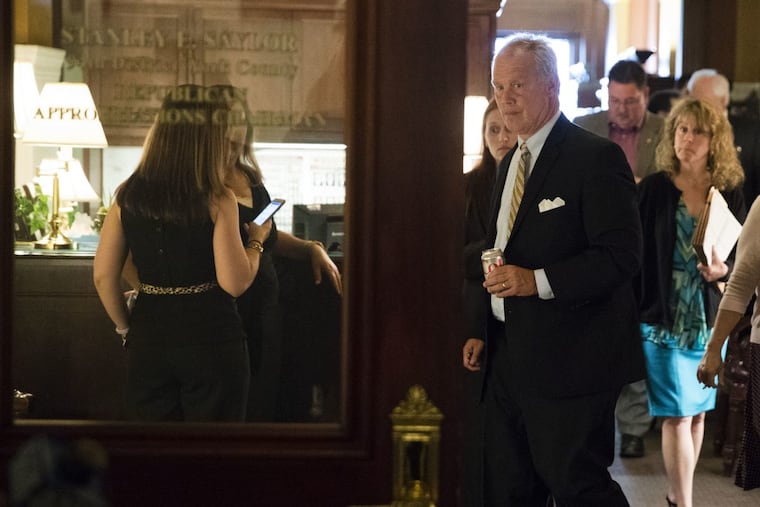Budget stalemate has more to do with Turzai's political posturing
Where is the courage in the legislature to do the right thing, and find recurring sources of revenue to pay the state's bills?

Pennsylvania House Speaker Mike Turzai apparently isn't paying attention to the tailspin fellow Republicans in Washington are battling for blithely pursuing a course to appease their tax-averse campaign contributors that would jeopardize the health care of millions of Americans.
Turzai has derailed bipartisan negotiations to balance the state budget, leaving even some members of his caucus confused. The Allegheny County legislator insists that the $32 billion budget passed in June can be balanced without raising taxes. But, like the repugnant Republican ideas to replace Obamacare, his proposals don't stand up to scrutiny.
Senate Republican leaders thought a budget deal with Democrats was imminent until Tuesday, when Turzai reiterated his objection to any significant tax increase. Senate Majority Leader Jake Corman (R., Centre) said "I'm not giving up," but he sent his caucus home. Corman said the leadership would vet Turzai's ideas, but it's the same proposals Turzai has been making for weeks.
He thinks more gambling and booze is the answer. Turzai has supported bills to expand slots gambling to corner bars and allow grocery stores to sell alcohol. Rather than pass meaningful revenue measures that would give the state the means to provide for the health, education, and welfare of its citizens, Turzai prefers to exploit their leisure activities.
The House proposals won't generate enough to fill the budget hole. About $800 million more is needed to pay for the $32 billion spending plan that Gov. Wolf signed. But Turzai won't support even a comparatively easy solution to help fill the budget gap — extending the state's gross receipts tax to natural gas — because the levy would be passed on to consumers.
The Senate seems to favor a proposal to borrow against future tobacco settlements owed to the state to help balance the budget. But that would mean reducing funds dedicated to stop-smoking programs, medical research, medical assistance for disabled workers, reimbursements to hospitals for charity care, and helping senior citizens stay in their homes.
Where is the courage to do the right thing, and find recurring sources of revenue to pay the state's bills? Turzai says the state must start spending within its means. But the budget the House passed in April, at $31.5 billion, wasn't that much less than the one Wolf signed in June. The state would still need funds to balance it.
For seven years, Republicans in Congress talked big about doing a better job of reforming health care if given the chance. They got that chance after President Trump was elected, but have failed miserably to deliver the goods. Similarly, the GOP is in control of the Pennsylvania legislature, but has done a poor job of being the state's fiscal stewards.
Republicans may blame that on not also holding the governor's office. But that doesn't wash. Wolf signed an unbalanced budget, trusting the Republicans to put aside philosophical differences to help him meet their constitutional duty to fully fund any approved spending plan.
In retrospect, perhaps Wolf shouldn't have signed the budget. The good-faith gesture didn't prevent the same posturing that has plagued past budget negotiations.